Astronomy
-
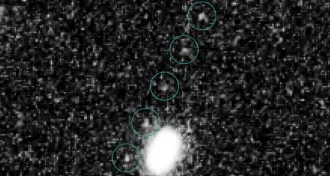 Astronomy
AstronomySecond stop planned for mission to Pluto
Scientists identify three possible targets for the New Horizons probe after it visits the former planet.
-
 Astronomy
AstronomyComet-crazed, and for good reason
Coming to the edge of knowledge, especially about what’s out in space, fires the imagination.
By Eva Emerson -
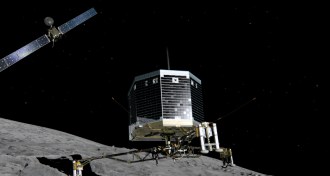 Astronomy
AstronomyRosetta readies for its close rendezvous with a comet
The Rosetta spacecraft and its lander Philae are ready to make history in a risky rendezvous with comet 67P/Churyumov-Gerasimenko.
-
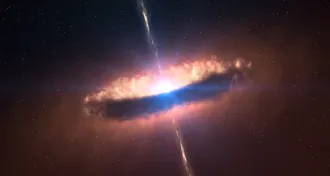 Astronomy
AstronomyCosmic jets re-created in a lab
Physicists have recreated in a lab the plasma jets that erupt from young stars and black holes.
-
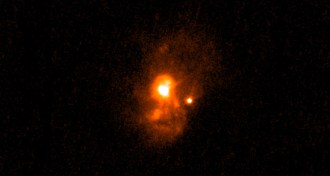 Astronomy
AstronomyNearby galaxy might explain what tore apart universe’s hydrogen
A local galaxy is leaking enough ultraviolet light to ionize surrounding hydrogen, which could explain how the earliest galaxies transformed the universe.
-
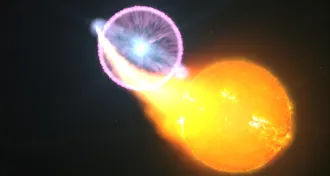 Astronomy
AstronomyHigh-energy radiation from stellar explosions explained
The dance of a stellar duo might explain why some novas emit gamma rays.
-
 Planetary Science
Planetary ScienceSun may make most of the water on moon’s surface
A constant stream of particles from the sun bombarding the moon's surface may be the source of most lunar water.
-
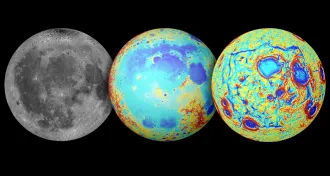 Planetary Science
Planetary ScienceAsteroid impact did not form the moon’s largest plain
The moon's vast flatland — called Oceanus Procellarum — may have been formed through tectonic-like activity billions of years ago, scientists say.
-
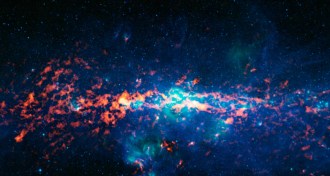 Chemistry
ChemistryInterstellar chemical resembles building blocks of life
A molecule detected in the space between stars resembles amino acids, suggesting those building blocks of life share a similar origin.
By Beth Mole -
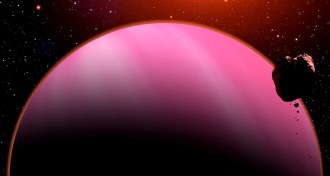 Astronomy
AstronomyWater found on Neptune-sized world
Just four times as wide as Earth, HAT-P-11b is the smallest exoplanet known to store water in its atmosphere.
-
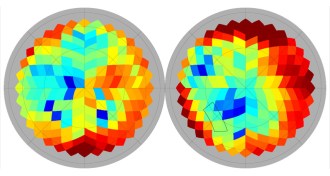 Cosmology
CosmologyGravitational wave discovery gives way to Milky Way dust
New polarization maps from the Planck satellite suggest that the BICEP2 announcement this year of primordial gravitational waves might be due entirely to dust in our galaxy.
-
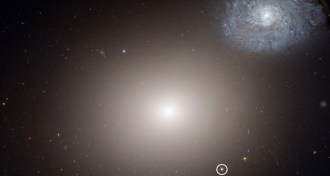 Astronomy
AstronomyEnormous black hole resides at core of tiny galaxy
A small galaxy stores 15 percent of its mass in a black hole, suggesting compact galaxies might be shreds of once larger galaxies.